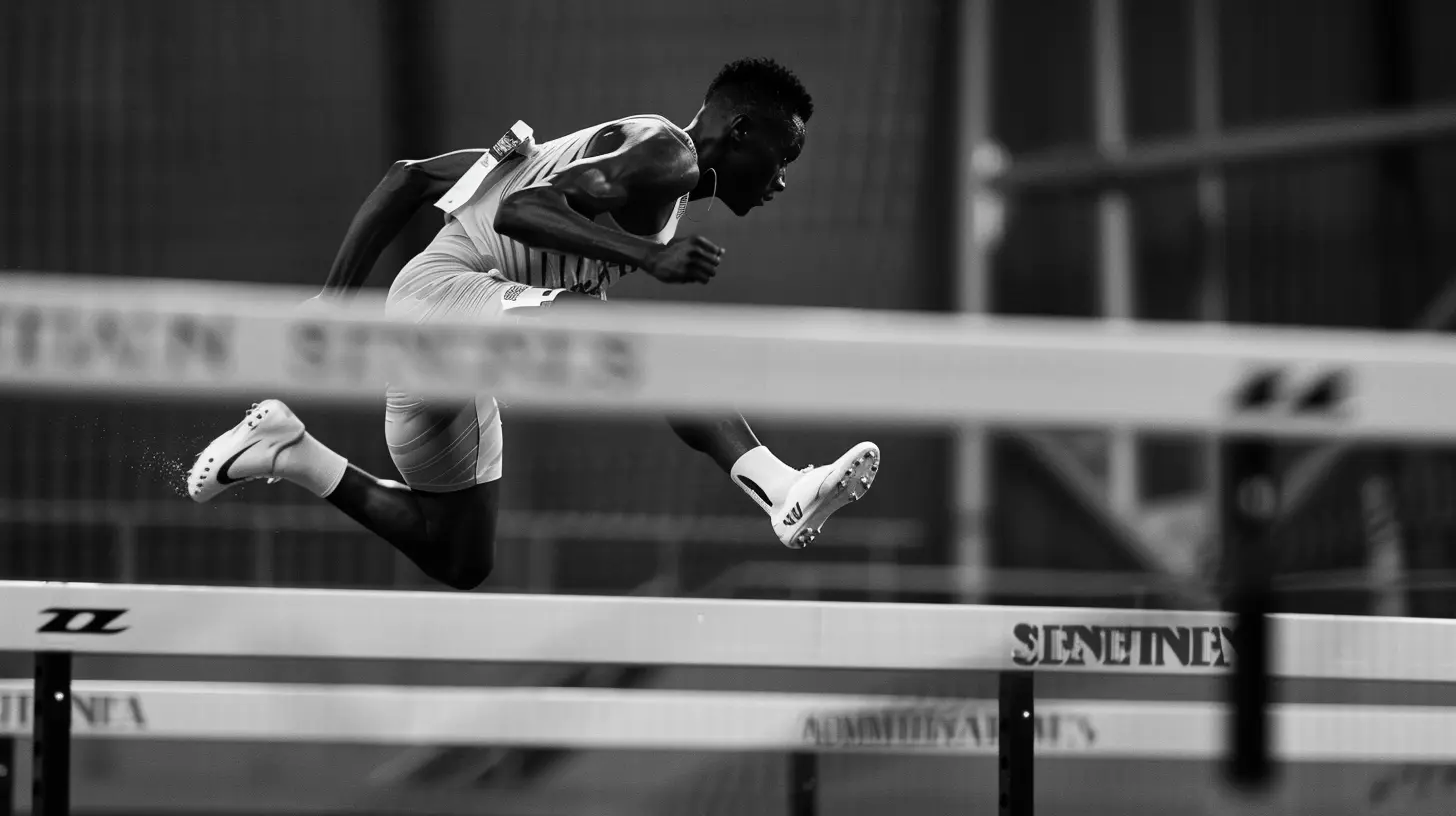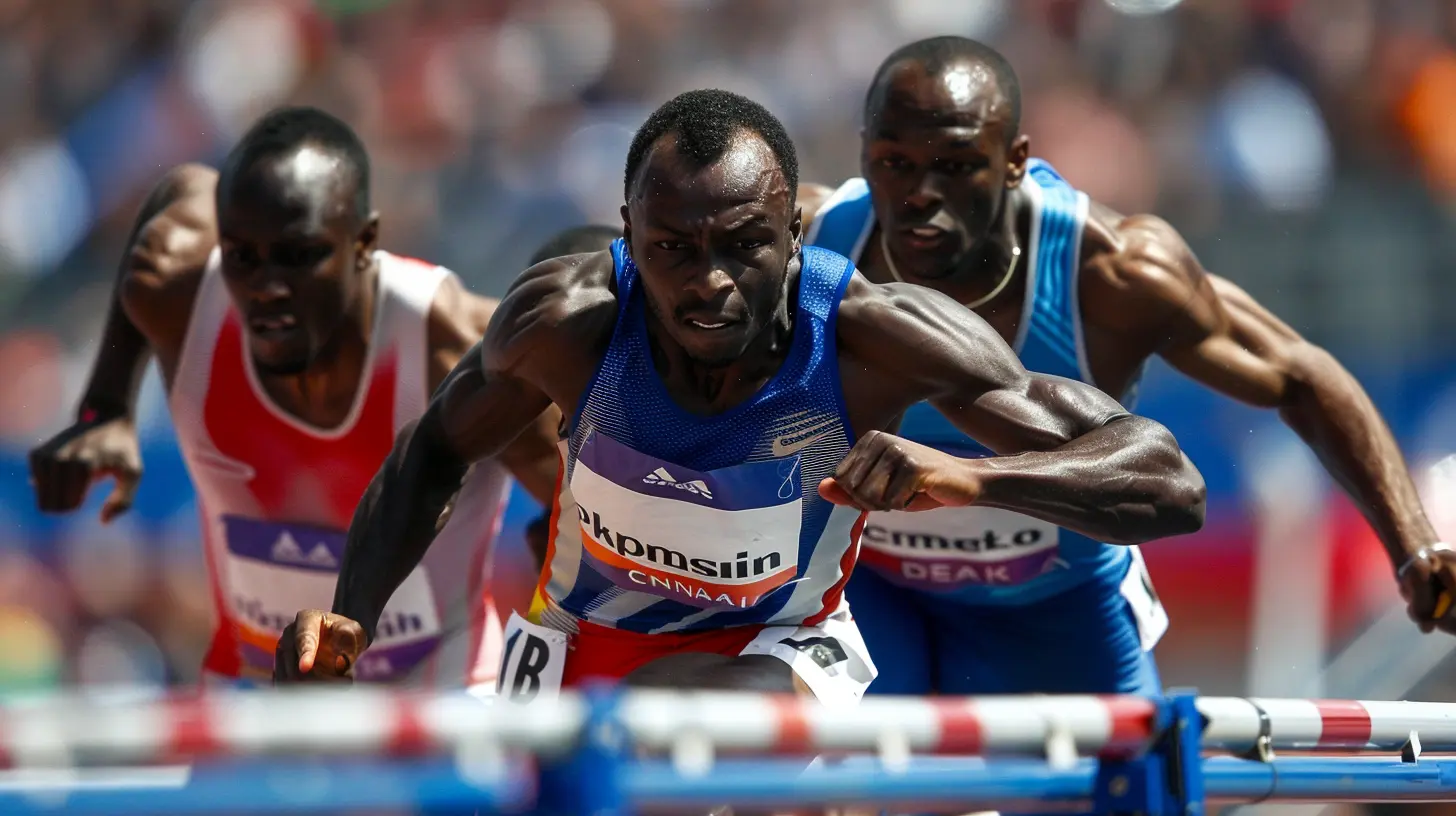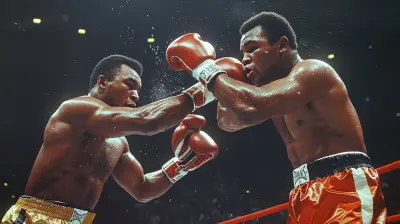The Importance of Flexibility in Hurdling Performance
28 April 2025
Hurdling isn't just about speed and technique—it's about fluidity, control, and overall athleticism. If you've ever watched the greats glide over hurdles effortlessly, you've probably wondered, "How do they make it look so easy?" Well, a key ingredient to that effortless motion is flexibility.
Flexibility plays a huge role in hurdling performance. It affects everything from stride length to injury prevention, making it one of the most underrated aspects of a hurdler’s success. Whether you're an aspiring hurdler or a seasoned athlete, prioritizing flexibility in your training can give you a competitive edge.

How Does Flexibility Impact Hurdling?
Imagine trying to leap over hurdles with stiff, tight muscles—sounds painful, right? Without proper flexibility, your body struggles to move efficiently, limiting your range of motion and increasing the risk of injury. Let’s break down exactly why flexibility is a game-changer for hurdlers.1. Increases Range of Motion
Hurdling requires extreme hip flexibility. If your hips are stiff, lifting your lead leg high enough to clear the hurdle becomes a Herculean task. The more flexible your hip flexors, hamstrings, and glutes, the smoother and more effortless your hurdling motion will be.A greater range of motion allows for:
- Higher knee drive – Essential for clearing hurdles without excessive strain.
- Better trail leg mechanics – A flexible trail leg helps you maintain speed between hurdles.
- Smoother takeoff and landing – Less resistance from tight muscles means more explosive power.
2. Enhances Stride Efficiency
Ever notice how elite hurdlers seem to float over hurdles without breaking their stride? That’s because flexibility allows them to maintain fluid movement between jumps. When your muscles are loose and elastic, you recover from each hurdle faster, keeping your rhythm intact.If your muscles and joints are stiff, your strides become choppy, slowing you down. Simply put, better flexibility equals better rhythm—which is exactly what every hurdler needs.
3. Reduces the Risk of Injury
Tight muscles are ticking time bombs. They increase the likelihood of:- Hamstring pulls
- Hip flexor strains
- Lower back pain
- Ankle and knee injuries
Hurdling puts immense stress on your legs, hips, and core. Without flexibility, the constant impact and explosive movements can lead to nagging injuries that derail your progress. Keeping your muscles and joints supple reduces stiffness and helps your body absorb shock more efficiently.
4. Boosts Power and Speed
Wait, doesn’t flexibility make you looser and weaker? Nope—that’s a massive myth. In fact, flexible muscles generate more power because they can stretch and contract more efficiently.Think of your muscles like rubber bands. A tight, stiff rubber band won’t stretch as far and snaps under pressure. A flexible rubber band, on the other hand, stretches further and snaps back with more force. That’s exactly how your muscles work.
Having flexible hamstrings, glutes, and hip flexors allows your legs to generate maximum force with each stride and jump, making you faster and more explosive.
5. Improves Posture and Body Alignment
Hurdling isn’t just about getting over the bar—it’s about doing it with optimal form. Poor flexibility can lead to:- Slouched posture
- Imbalanced muscle coordination
- Restricted mobility
If your body isn’t properly aligned, you’re wasting energy on inefficient movements. Good flexibility ensures that your shoulders, hips, and legs stay in sync, helping you maintain an aerodynamic posture over hurdles.

Best Flexibility Exercises for Hurdlers
So now that we know why flexibility matters, how do we actually improve it? Glad you asked. Here are some of the best flexibility exercises every hurdler should include in their routine.1. Dynamic Stretching (Pre-Workout)
Before training, focus on dynamic stretches to warm up your muscles and improve mobility. Here are a few great ones:- Leg swings: Forward and sideways swings to loosen up hips and hamstrings.
- High knees: Engages hip flexors and improves knee drive.
- Butt kicks: Stretches quads and enhances running mechanics.
- Lunges with a twist: Opens up the hip flexors and strengthens the core.
2. Static Stretching (Post-Workout)
After training, static stretches help maintain flexibility and prevent stiffness. Key stretches include:- Seated hamstring stretches: Targets the back of the legs to improve stride length.
- Butterfly stretch: Great for improving hip mobility.
- Hip flexor stretch: Essential for hurdlers to maintain proper lead leg technique.
- Quadriceps stretch: Prevents tight quads from restricting movement.
3. Yoga & Mobility Drills
Yoga is a secret weapon for hurdlers. It improves flexibility, balance, and core strength—all of which are critical for top performance. Try poses like:- Pigeon Pose: Opens up the hips and glutes.
- Cobra Pose: Stretches the lower back and improves spinal mobility.
- Downward Dog: Lengthens the hamstrings and strengthens the shoulders.
Adding mobility drills, such as resistance band exercises and foam rolling, also keeps your muscles loose and agile.

How to Incorporate Flexibility Training into Your Routine
Flexibility training doesn’t have to be a chore. Here’s how to seamlessly incorporate it into your workouts:- Pre-Workout: Spend 10-15 minutes on dynamic stretches before hitting the track.
- Post-Workout: Dedicate 10 minutes to static stretching or yoga to cool down.
- Active Rest Days: Use yoga or light mobility work to stay loose without overloading your muscles.
- Consistency is Key: Stretching once in a while won’t cut it. Aim for at least 3-5 dedicated flexibility sessions per week.

Final Thoughts
If you’re serious about improving your hurdling performance, flexibility training isn’t optional—it’s a must. Enhanced flexibility helps you clear hurdles with ease, maintain your stride, reduce injury risks, and boost overall speed and power.Want to be the one effortlessly gliding over hurdles while your competition struggles? Spend time on your flexibility. It might just be the secret weapon you’ve been missing.
all images in this post were generated using AI tools
Category:
AthleticsAuthor:

Onyx Frye
Discussion
rate this article
6 comments
Valeria McKay
Great article! Flexibility really is a game-changer for hurdlers. It not only enhances performance but also helps prevent injuries. As someone who struggled with flexibility, I completely relate to the struggle and the benefits of working on it!
May 2, 2025 at 2:30 AM

Onyx Frye
Thank you! I'm glad you found it relatable. Flexibility is indeed crucial for both performance and injury prevention in hurdling!
Henrietta McAleer
Great insights! Flexibility truly enhances hurdling success!
May 1, 2025 at 10:19 AM

Onyx Frye
Thank you! I'm glad you found the insights valuable. Flexibility is indeed key to improving performance in hurdling!
Ember Lozano
Flexibility in hurdling: like a pretzel at a yoga class! 🥨 Embracing those stretchy moments not only keeps you agile but also helps you leap over life’s obstacles, both on the track and in snack choices. Who knew flexibility could be your secret weapon?!
April 29, 2025 at 11:11 AM

Onyx Frye
Absolutely! Flexibility is vital in hurdling, allowing athletes to navigate obstacles with ease and grace—just like mastering those yoga poses. Embracing flexibility enhances both performance and overall well-being! 🥨
Nix Mercado
Great insights on the role of flexibility in hurdling! Your emphasis on tailored stretching routines really highlights how crucial it is for athletes to enhance their performance. Looking forward to more articles on this topic!
April 28, 2025 at 8:42 PM

Onyx Frye
Thank you for your kind words! I'm glad you found the insights valuable. Stay tuned for more articles on flexibility and performance!
McDaniel
Flexibility is the secret sauce! Stretch, leap, and watch your hurdling skills soar to new heights!
April 28, 2025 at 10:49 AM

Onyx Frye
Absolutely! Flexibility is crucial for maximizing stride length and improving overall technique in hurdling. Keep stretching and reaching for new heights!
Esme Lawrence
Great article! Flexibility truly is crucial in hurdling. It not only enhances performance but also helps prevent injuries. Thanks for highlighting this important aspect of training!
April 28, 2025 at 4:33 AM

Onyx Frye
Thank you for your feedback! I'm glad you found the article helpful in highlighting flexibility's role in performance and injury prevention.




